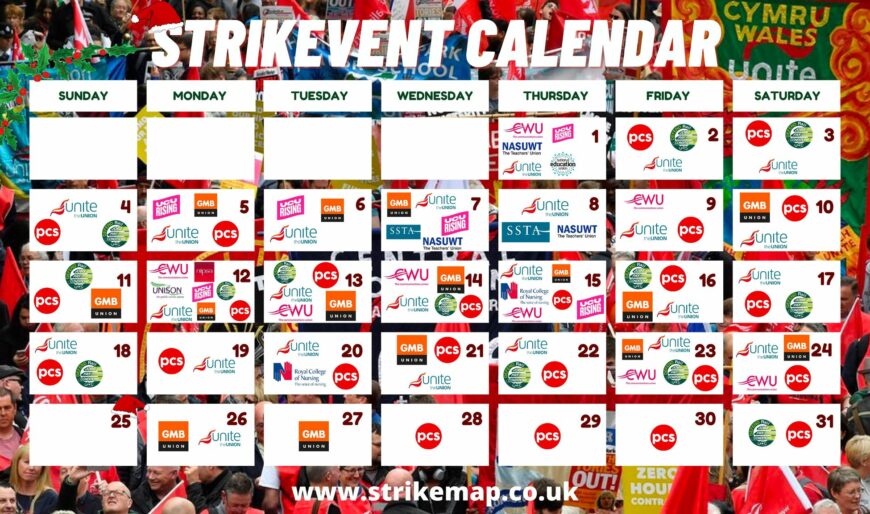Looking back at Grant Shapps’ 16 point plan to “deal with the unions”
In August, Grant Shapps revealed a 16 point plan to deal with "militant unions"

In August, then Transport Minister Grant Shapps presented a 16 point plan in the pages of the Daily Mail. At that point, the measures were aimed principally at the rail unions, who had begun a series of national rail strikes, but since that time there has been repeated discussion about widening the scope of the legislation to include workers in other key sectors, and the floating of an all out ban on strikes in the emergency services.
In the context of this, it might be instructive to go back to Shapps’ 16 point plan, to assess where they stand and whether more aspects are likely to appear on the statute book. The Government now seem to be in a hurry to curtail the right to strike in many sectors, and labour movement analysts would be within their rights to ask if Shapps’ 16 point plan is being used as a blueprint.
So, what are the 16 points?
- Raise strike ballot support threshold from 40% to 50% of eligible workers.
- Require unions to give 4 weeks’ notice of industrial action instead of 2.
- Limit ballot mandate to one event of strike action. Currently, the mandate allows any number of strikes over 6 months.
- Impose absolute limits on numbers attending pickets.
- Place restrictions on picketing in the vicinity of Critical National Infrastructure (CNI) sites.
- Prohibit use of inflammatory language on pickets.
- Prohibit online intimidation.
- Make it easier for employers to put pay offers directly to workers, rather than via their union, by removing risk of legal sanctions for doing so.
- Require ballot papers to clearly state the reason for the dispute and the employers response to the issues in dispute.
- Lift the ban in the Civil Contingencies Act on using emergency regulations to stop strike action where it may create a national emergency.
- Bring in a cap on facility time, which allows union representatives to carry out union work on employers’ time, in the public sector.
- Minimum service levels must be delivered during strikes.
- Remove ability for trade union membership fees to be paid from wages.
- Investigate possibility of taxing walkout payments paid to strikers. Not all unions make such payments, but for those who do, the payments are currently tax-free.
- Remove ban on agency workers being used to temporarily replace strikes.
- Increase the damages cap for unlawful strikes from £250,000 to £1 million.
It’s obvious that there are many of these points that are very much still on the Government’s agenda, irrespective of the changes in Tory Party leadership. Shapps is now Business Secretary, and in a strong position to present his plan as an immediate solution to the strikes sweeping the country.
Two of the 16 points have already been introduced:
- allowing agency staff to work during strikes (by amending the Conduct of Employment Agencies and Employment Business Regulations)
- increasing the fines for unlawful action (by amending the Trade Union and Labour Relations (Consolidation) Act 1992)
In addition, the minimum service level measures (point 12) has been packaged up in a Transport Strikes (Minimum Service Levels) Bill. This Bill has been the subject of much discussion, with union leaders such as Mick Lynch pointing out that forcing unions to sit down with employers to work out minimum service levels is effectively asking union members to break their own strikes. There are also suspicions that the scope of that legislation will be extended to include other key workers.
In recent days, points 1 (raising strike ballot support threshold from 40% to 50% of eligible workers), point 2 (requiring unions to give 28 days notice of industrial action instead of 14), and point 3 (limiting ballot mandates to one event of strike action) have been heavily foregrounded in discussions about the Government’s response to the increasing industrial action. It’s hard not to imagine that they are working their way through the list.
You can read more about the anti-trade union legislation and it’s induistrial relations context in our new booklet, ‘Workers’ Rights in Times of Crisis’, produced alongside the Campaign for Trade Union Freedom. Download it for free here.








The Strikes (Minimum Service Levels) Bill is authoritarian, illiberal and illegal